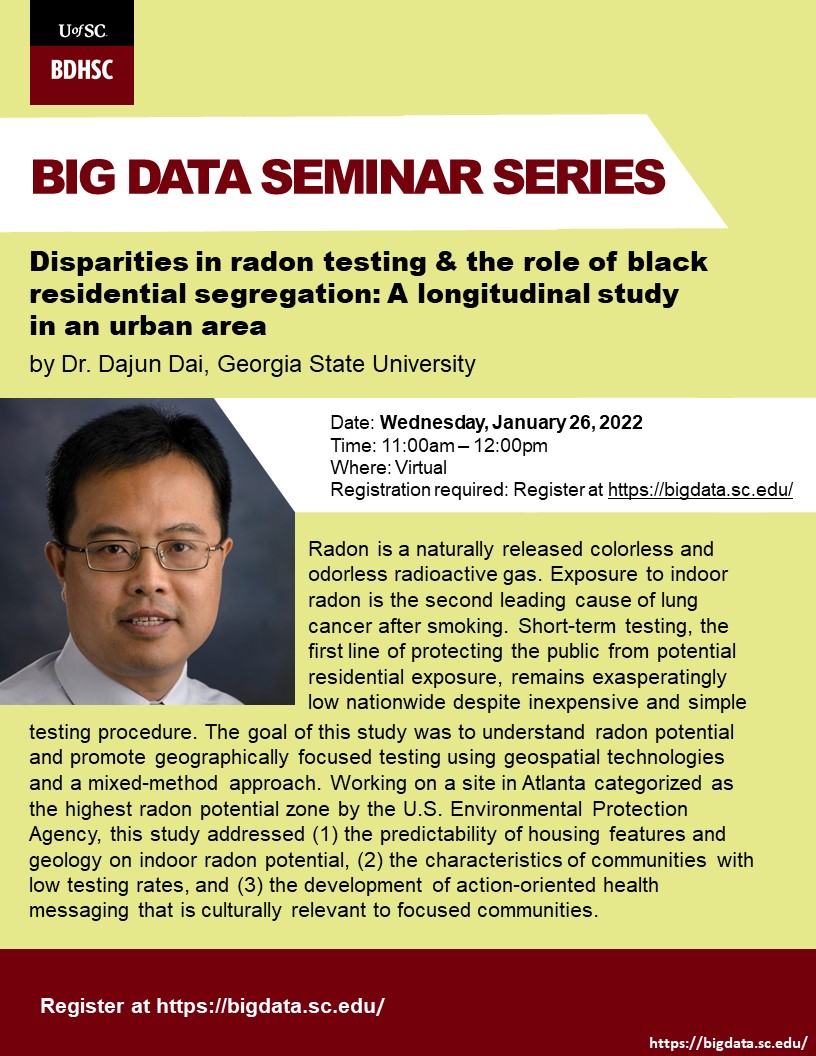
- This event has passed.
Disparities in radon testing and the role of black residential segregation: A longitudinal study in an urban environment
January 2022 Seminar: Disparities in radon testing and the role of black residential segregation: A longitudinal study in an urban environment by Dr. Dajun Dai. This seminar is hosted by the BDHSC Geospatial Core.
Seminar Description:
Radon is a naturally released colorless and odorless radioactive gas. Exposure to indoor radon is the second leading cause of lung cancer after smoking. Short-term testing, the first line of protecting the public from potential residential exposure, remains exasperatingly low nationwide despite inexpensive and simple testing procedure. The goal of this study was to understand radon potential and promote geographically focused testing using geospatial technologies and a mixed-method approach. Working on a site in Atlanta categorized as the highest radon potential zone by the U.S. Environmental Protection Agency, this study addressed (1) the predictability of housing features and geology on indoor radon potential, (2) the characteristics of communities with low testing rates, and (3) the development of action-oriented health messaging that is culturally relevant to focused communities.
Speaker:
Dr. Dajun Dai is a tenured professor at Department of Geosciences at Georgia State University (GSU) jointly appointed at GSU School of Public Health. He is an affiliated faculty member at the Injury Prevention Research Center at Emory University and Georgia Health Policy Center. His research addresses access to healthcare, neighborhood effects, social and physical difference and their implication on public health, planning, and public policy. His research has been supported by the World Health Organization, the National Institutes of Health, the National Science Foundation, the U.S. Geological Survey, and the Robert Wood Johnson Foundation, among others.
The in-person portion of this event has been canceled
Register for virtual attendance (via Zoom) here, https://bit.ly/3HyZVMN

